News and Insights
Rethinking Biodiversity Loss:
Why Climate Change Isn’t the Whole Story
Dr. Poulomi Chakravarty with Hart Hagan
Conserving biodiversity is not only about saving species for their own sake, it is also a powerful climate strategy. Ecosystems like forests, savannahs, and wetlands actively remove carbon dioxide from the atmosphere, regulate water cycles, and buffer against climate extremes (Caro et al., 2022).
By protecting these ecosystems, we achieve a double win: slowing biodiversity loss and tackling climate change in a cost-effective, nature-based way.Keep reading below, and dive even deeper with the new course from Bio4Climate: Wildlife & Climate.
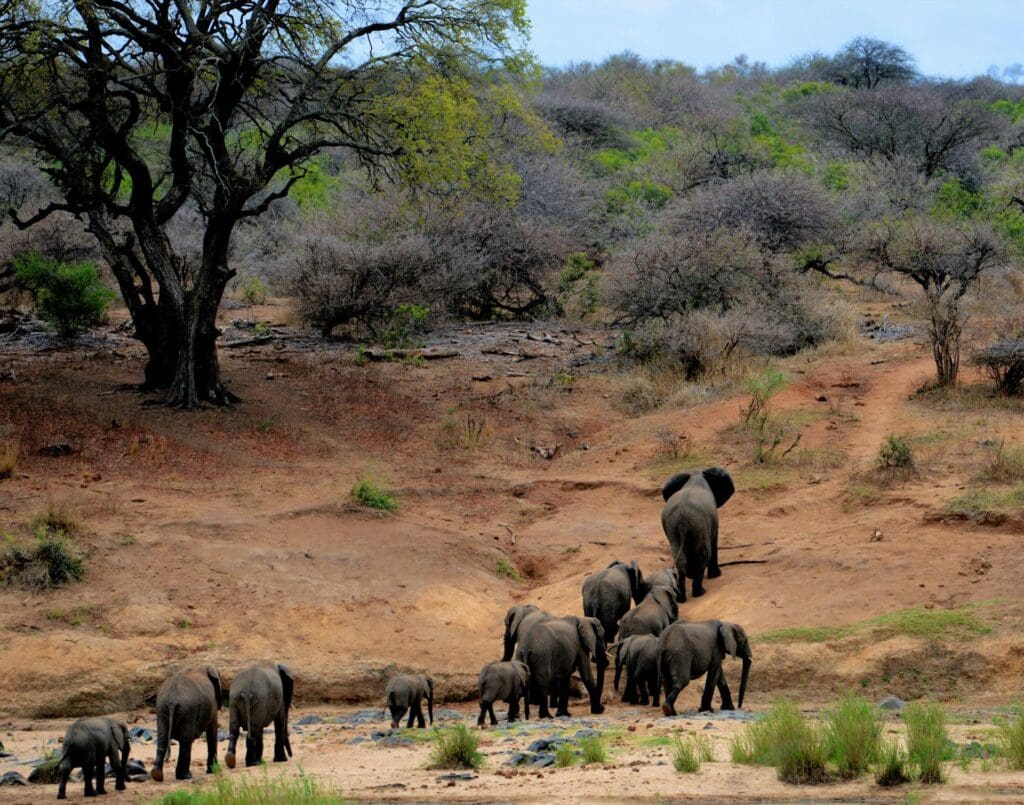
Events and Community
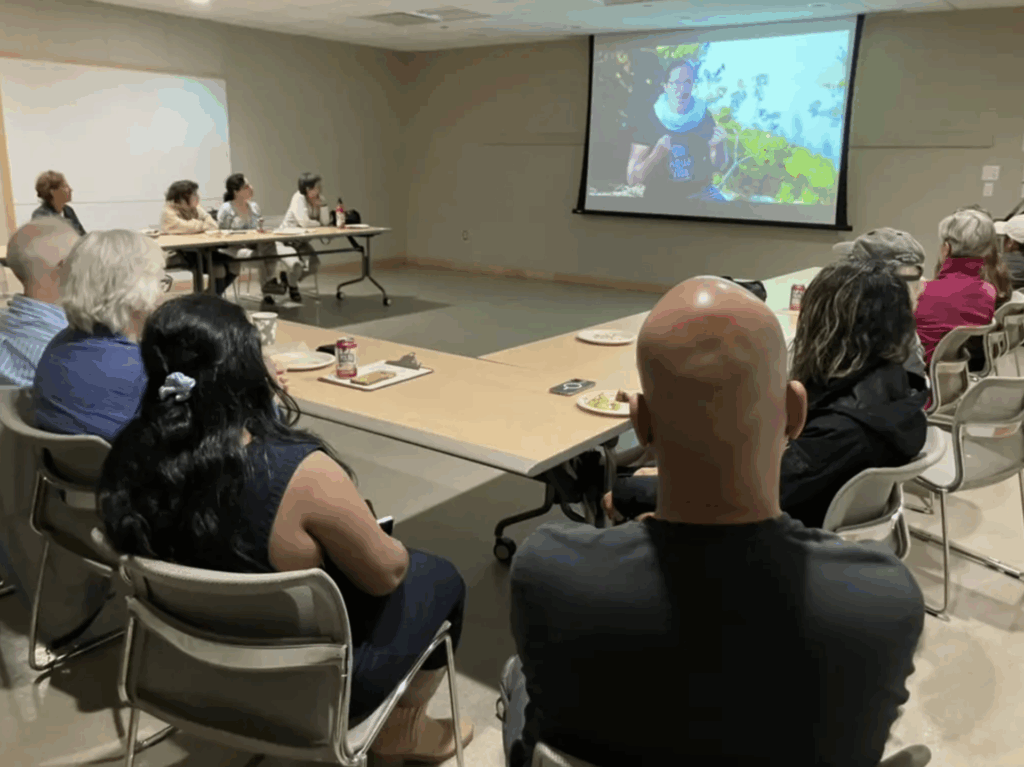
Cambridge | Water is Love!
Thank you to everyone who came out and joined our community screening (and lively discussion) of the film, Water Is Love, at the Cambridge Public Library the last week of August!
If you haven’t seen it, the documentary showcases case studies from India, Kenya, and Portugal where communities are using decentralized water management methods to restore local water cycles. These efforts not only secure clean water for villages and farms but also help regenerate microclimates. That means cooler landscapes, recharged soils, and, ultimately, regional and global climate stability.
If you find yourself asking, as one young attendee did, “What can we do?” read more from Poulomi Chakravarty, PhD., on her takeaways from the discussion and how we can all take a little more responsibility for the water in our communities.
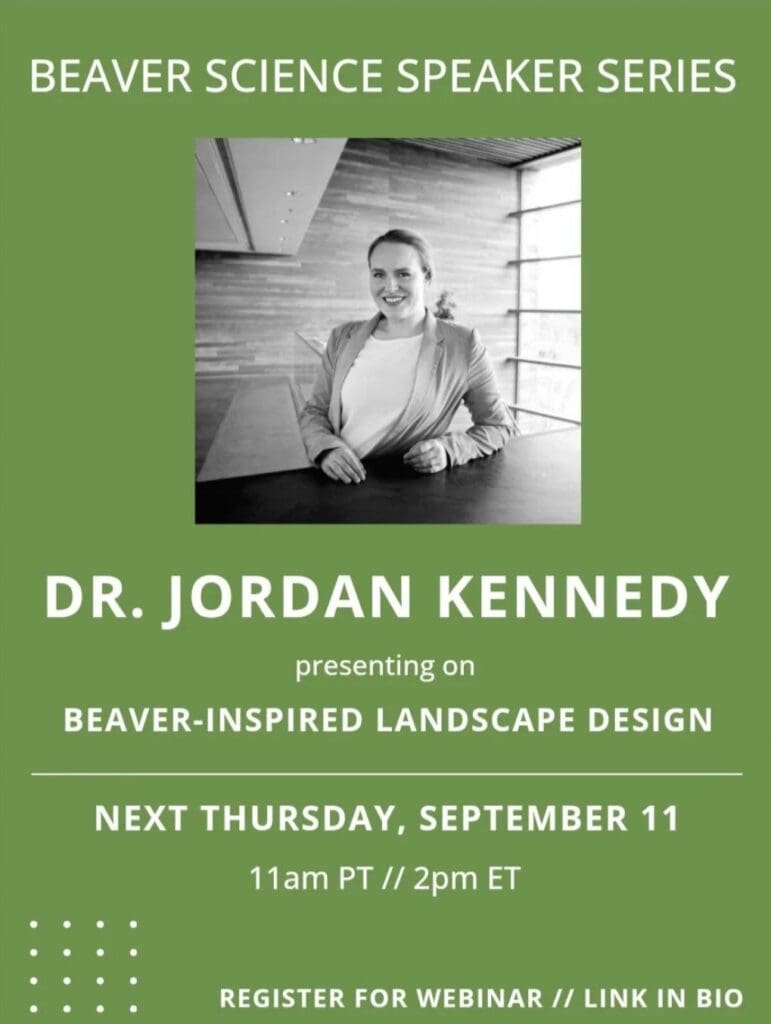
Virtual | Beaver-Inspired Landscape Design
Remember Beaverland, the book by Leila Phillips that most of us couldn’t be pulled away from? It was there we first learned about the work of Dr. Jordan Kennedy, an interdisciplinary researcher whose work bridges non-human animal engineering, hydrodynamics, and Indigenous-led conservation.
Now you can learn directly from Dr. Kennedy! The Beaver Institute is hosting a webinar with her as part of their Beaver Science Speaker Series on September 11, 2pm ET. Holding a Ph.D. and M.S. in Materials Science and Mechanical Engineering from Harvard University, Kennedy’s research spans beaver damming behaviors, logjam hydrodynamics, biomimetic design, and beaver-inspired robotics.
Courses
Join us this fall for two new courses to explore how rewilding our thinking, about rivers, wildlife, and entire ecosystems, can reshape our climate future.
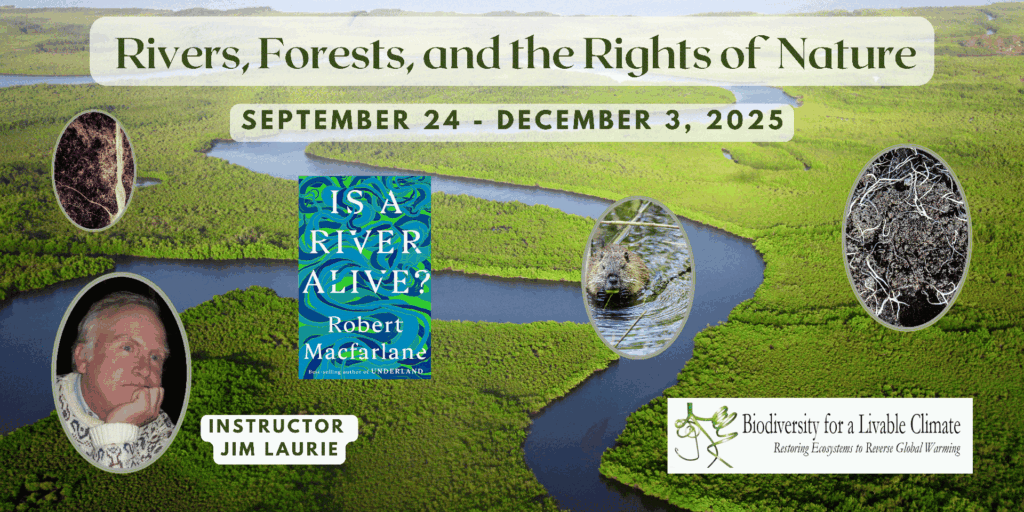
Is a River Alive? Can rivers, forests, and other ecosystems be recognized as living beings with rights?
Jim Laurie leads a new 10-week journey guided by the questions and travels of author Robert Macfarlane. Each week we’ll connect these stories to larger ecological truths: that rivers, forests, wetlands, and fungi-rich soils function as one interconnected system, critical to rehydrating continents and cooling the climate. examine how biodiversity infiltrates water into soils, how plants cover and protect landscapes, how fungal networks sustain resilience, and how living shorelines can buffer rising seas.
This is a 10-week course that meets every Wednesday, September 24–December 3. Classes are offered 12 – 2 pm ET or 7 – 9 pm ET on Zoom.
A free introductory webinar is available on September 10. Are Causes of Sharp Wildlife Decline Also Driving Climate Instability?
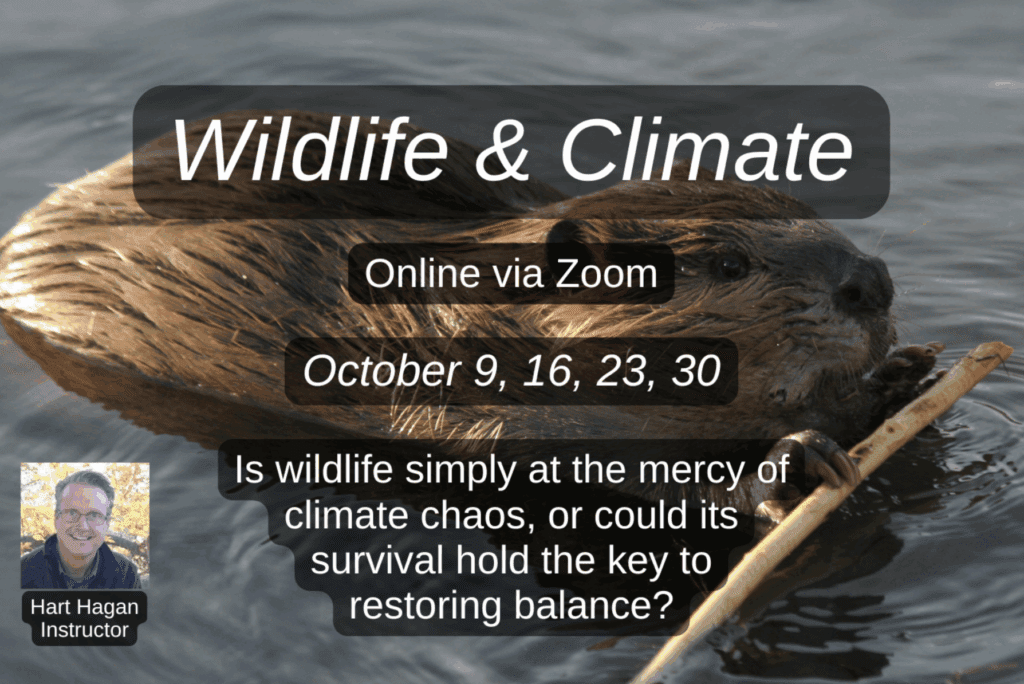
Are Causes of Sharp Wildlife Decline Also Driving Climate Instability?
Wildlife & Climate, taught by Hart Hagan and an exciting roster of guest experts, explores the actual connections between wildlife and climate change and gives us a real and viable framework for living with nature, restoring habitat and addressing climate change.
Just looking to dip a toe in? Join us for a free webinar!
Urban Pollinator Garden Update
With Hart Hagan
Monday, September 8
7:00 PM ET
Status of Vertebrate Populations
With Hart Hagan
Friday, September 12
3:00 PM ET
